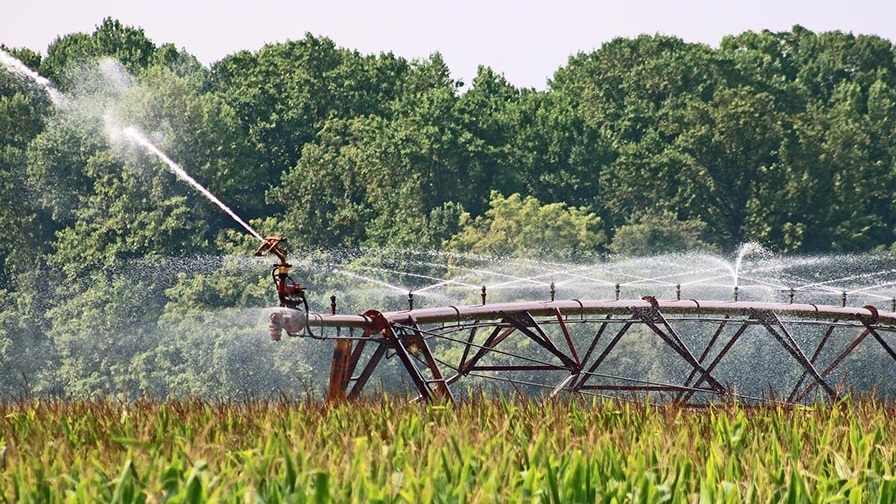How to Choose the Right Solar Inverter for Your Irrigation System
When configuring an electric power system—be it for residential solar photovoltaic installations, industrial motor control applications, or any scenario requiring energy conversion—selecting the appropriate solar water pump inverter is crucial. The basic function of a solar water pump inverter is to convert direct current into alternating current, and choosing the right solar water pump inverter involves considering the unique needs of the system. Whether you’re a farmer, agricultural business, or solar installer, understanding the key factors in inverter selection can help you save energy, reduce costs, and ensure reliable operation.
1. Match the Inverter to Your Solar Array & Pump
- Power Rating: Ensure the inverter’s capacity matches (or slightly exceeds) your solar panels’ output and pump motor requirements.
- Voltage Compatibility: Check if the inverter supports the DC input voltage of your solar array and the AC output needed for the pump.
- Single-Phase vs. Three-Phase: Choose based on your pump motor type (smaller systems often use single-phase, while large farms may need three-phase).
2. Prioritize Efficiency & MPPT Technology
- High Efficiency (≥95%): Minimizes energy loss between solar panels and pump.
- MPPT (Maximum Power Point Tracking): Essential for adjusting to changing sunlight conditions and maximizing energy harvest.
- Wide Operating Voltage Range: Allows flexibility in panel configuration and better low-light performance.
3. Durability for Harsh Environments
- IP65/IP66 Rating: Protects against dust, moisture, and extreme temperatures.
- Heat Dissipation: Look for inverters with passive/active cooling for long lifespan.
- Surge Protection: Guards against voltage spikes from weather or grid fluctuations.
4. Smart Features for Modern Farming
- Remote Monitoring: IoT-enabled inverters allow tracking via smartphone/PC.
- Pump Protection: Dry-run detection, overvoltage/overload shutdown.
- Grid/Diesel Hybrid Option: Backup power support for uninterrupted irrigation.
5. Consider Total Cost of Ownership
Initial Cost vs. Long-Term Savings:High-quality inverters may cost more upfront but reduce maintenance and energy expenses.
6. Consider system compatibility and scalability
Some solar water pump inverters offer modular designs, allowing for future system expansion, which is especially useful when anticipating growth in energy demands. Furthermore, the ability to interface with other components of the electric power system (such as energy storage batteries in a solar photovoltaic system or monitoring equipment for data logging and remote management) should be factored into your decision-making process.
7. Consider system matching and grid compatibility
When considering solar water pump inverters for renewable energy systems like solar photovoltaic arrays, ensure the solar water pump inverters match the voltage and electrical characteristics of the solar panels or battery banks. For grid-connected systems, solar water pump inverters must synchronize with the utility grid’s voltage, frequency, and phase. The solar water pump inverters must also comply with local electrical grid standards and maintain anti-islanding protection for safety during power outages.
8. Installation requirements and protection features
Installation requirements and protection features play a vital role in the operational safety and equipment protection. Solar water pump inverters should be robust enough to withstand the environmental conditions the solar water pump inverters will be exposed to. This includes protection against extreme weather events, operational temperature ranges, and supplemental moisture protection. Overload protection, short-circuit protection, and thermal protection are equally crucial to prevent damage to the solar water pump inverters and connected equipment.
In conclusion, the solar water pump inverter selection is a foundational decision that ensures the efficient and reliable operation of your electric power system. By considering the type of electrical load, power capacity rating, output waveform quality, conversion efficiency, system adjustability, compatibility with existing equipment, environmental considerations, and manufacturer support, you can select solar water pump inverters that not only meet current system requirements but also anticipate future operational needs and technical challenges. The chosen solar water pump inverters represent an investment in the operational stability and energy productivity of your power infrastructure, playing an essential role in the long-term success of the electric power system.




